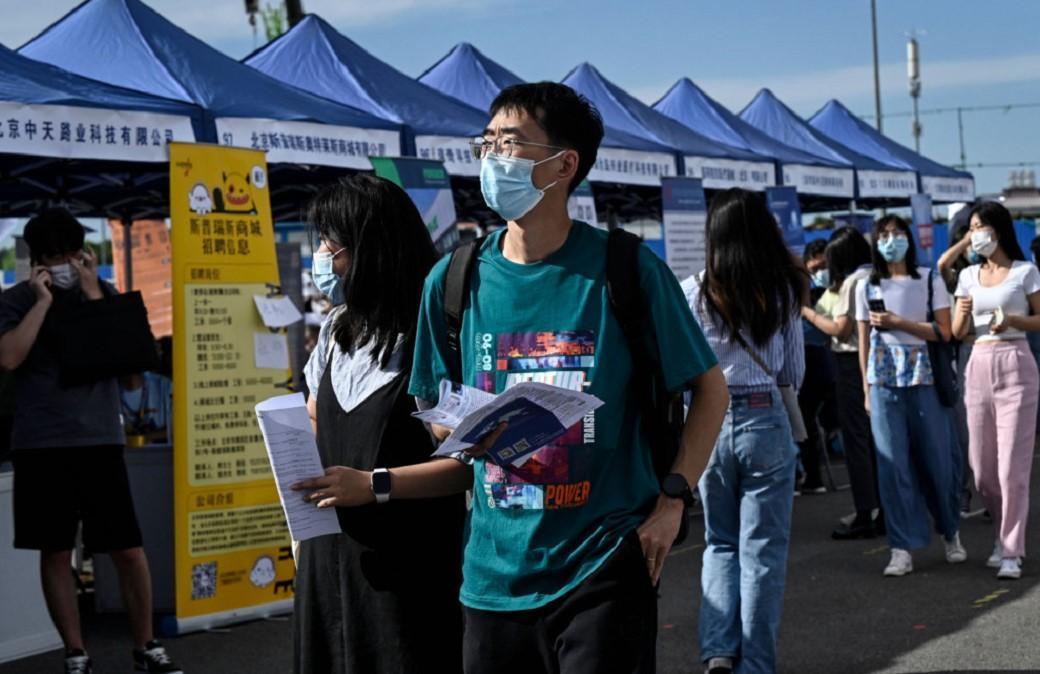
China’s slowing economy has left millions of young people fiercely competing for an ever-slimming raft of jobs and facing an increasingly uncertain future.
Official data released this month showed one in five young people in Chinese cities was out of work in July - more than three times the national average and the highest recorded since January 2018.
Nearly 11 million graduates entered China’s bleak job market this summer with the economy growing at 0.4 percent in the second quarter, the weakest in two years.
Analysts blame a slowing economy crippled by COVID lockdowns, as well as the large cohort entering the labour force during the graduating season in July and August, for the slim prospects facing China’s youth.
Official data does not track unemployment among rural youth, and the real jobless population could be more than double the official number, estimated Zhuang Bo, an economist at research group TS Lombard.
Blue-collar workers, too, are struggling to find work as growth in the manufacturing and construction sectors cools.
“The reality is more serious than what the data shows,” said Ho-fung Hung, who specialises in China’s political economy at Johns Hopkins University.
“If the problem continues without remedy, it will easily spread social disorders.”
At a job fair in the tech hub Shenzhen, long lines of anxious parents and young graduates waited for a chance to chat with recruiters.
But headhunters at the fair said they were cherry-picking graduates from top universities, because only a few positions were available.
Graduates who managed to find work this year were offered salaries that were on average 12 percent less than last year, data from online recruitment firm Zhaopin showed.
And while some job seekers were lowering their ambitions, others were biding their time pursuing further studies.
Experts warned that this may lead to “degree inflation”, where employers demand higher and higher qualifications for jobs that do not necessarily require them.